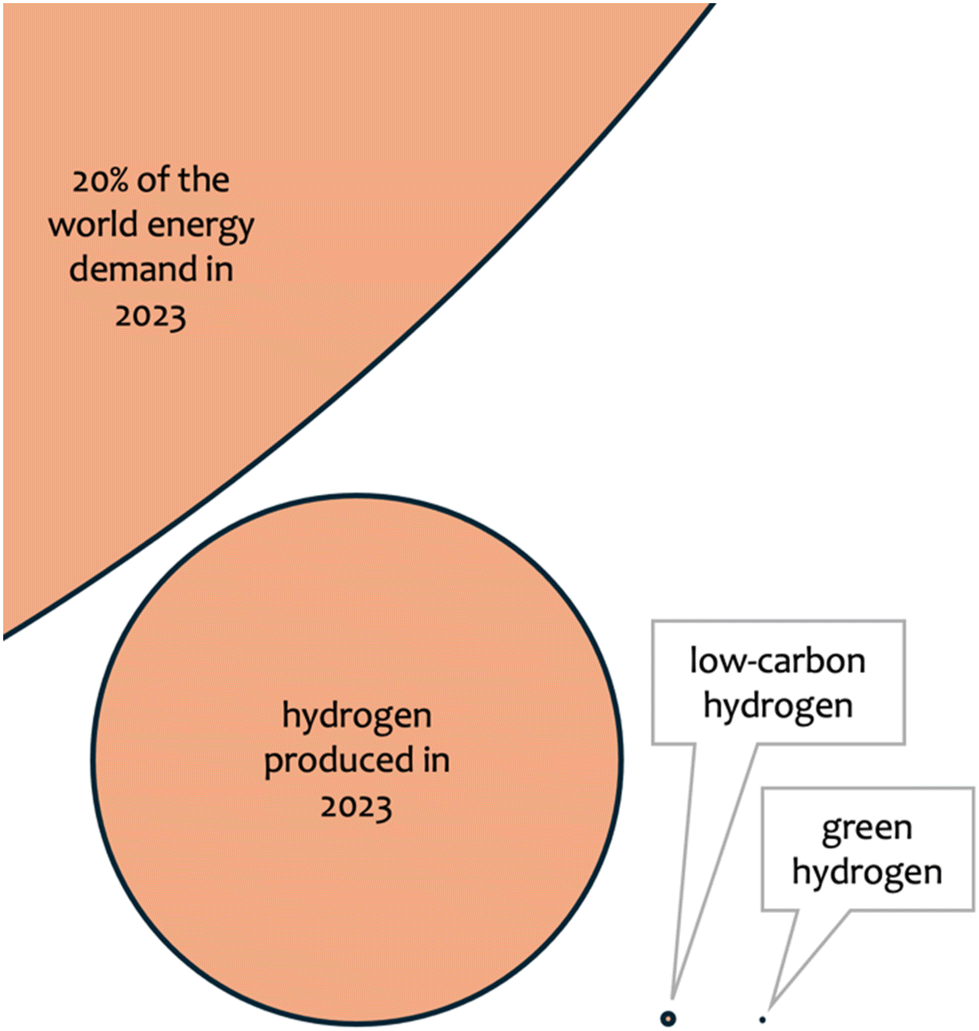According to scientists at the University of Amsterdam, simple calculations show that the idea of a hydrogen economy emerging in the 21st century is completely unrealistic. They wrote about this in Green Chemistry.
The concept of the hydrogen economy — that hydrogen should replace a large proportion of current fossil fuel energy carriers — has become popular for five reasons, explain Tycho Ehrhardt, a chemistry student, and Gadi Rothenberg, a professor, both at the University of Amsterdam, in an article.
These facts are that hydrogen is the most abundant element in the universe, can be easily produced through electrolysis, produces only energy and water vapour when burned, has a higher gravimetric calorific value than gas, petrol or diesel, and the energy for hydrogen production can be obtained from solar or wind energy.
All of these factors give a positive outlook on the feasibility of the hydrogen economy. However, the Amsterdam duo claim that it is nothing short of a fairy tale to believe that anything significant will be achieved in this century in terms of the hydrogen economy.
More critically, the above facts fail to mention that:
- hydrogen is abundant, but not freely available on Earth;
- electrolysis of water on a large scale is very expensive;
- the gravimetric energy density is high, but the volumetric energy density is not because hydrogen is a gas;
- it remains to be seen how much money and time we will have to invest in solar and wind energy to achieve this.
What motivated Rothenberg and Ehrhardt to write this article? ‘In 2023, I conducted similar research into the realistic situation surrounding CO2 and climate change worldwide, particularly with regard to the effects of sustainable chemistry’, Rothenberg explains in an email. ‘The findings were an eye-opener for me because of the huge discrepancy between what scientists say and the reality. After this work, I became more critical of so-called ‘general opinions’.’
Challenge

‘Over the past four years, we have been working on a major project on hydrogen energy transfer for a company’, continues the Amsterdam professor. ‘I wanted to contextualise the rather bombastic statements made by the EU and the US about the future of hydrogen. Tycho was looking for a literature project for his master’s thesis. He is a serious student who is good at analysing information.’ Ehrhardt took on the challenge of creating a simple model that clearly describes the economic aspects of hydrogen as an energy carrier.
In 2023, hydrogen production was around 97 million tonnes, of which more than 93 million tonnes came from fossil carbon sources. In energy terms, that equates to 3,201 TW h, which sounds impressive until you realise that global energy consumption in 2023 was 183,000 TW h.
The production of low-emission and green hydrogen is also negligible: less than 1 million and 100,000 tonnes respectively.
Taking into account the production processes and the expected economic growth of Africa and Asia, it is highly likely that the world will continue to use all types of energy, regardless of the source.
10%
In short, the EU and US hydrogen plans are unrealistic, they conclude. ‘Without a clear and convincing business plan, there is no reason to invest heavily in water electrolysis. The low costs and abundance of fossil fuels, and the lack of a global policy on CO2 taxation, make it impossible for green hydrogen to cover even 10% of global energy needs by 2050. Even if there were a clear incentive by then, it would take decades to set up a global infrastructure for green hydrogen. Fairy tales are nice, but in reality there will be no hydrogen economy in the 21st century.’
So what should we do with this information? ‘Ultimately, knowledge about a technology or an energy sector is essential for making good decisions’, says Rothenberg. ‘At the moment, we – scientists and policymakers alike – are promising too much. If you aim to achieve something by 2030 but don’t manage it until 2040, that’s fine. But if you don’t achieve it by 2100, you have to accept that you need to look for other solutions.’
Rothenberg refers to the narrative in the introduction: ‘The story of green hydrogen is appealing and powerful. But it’s just a story. It’s not true. We have to live in the real world. We need to realise that fossil fuels will make up a large part of the global energy mix throughout this century, and that’s why we need to encourage cleaner fossil fuel technologies.’
Ehrhardt, T. & Rothenberg, G. (2025) Green Chem. Advance Article, DOI: 10.1039/D5GC00946D













Nog geen opmerkingen